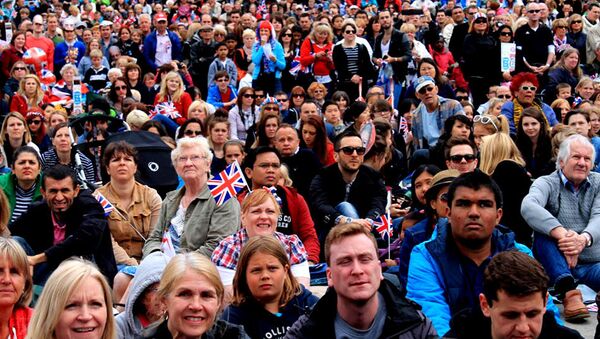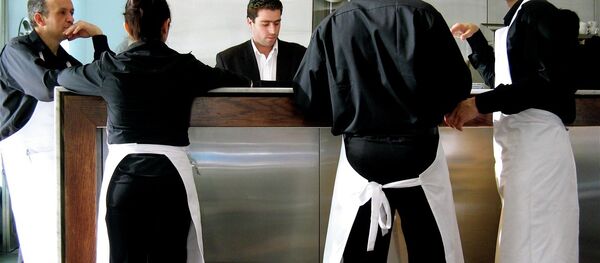As the political rhetoric is ramped up ahead of May's general election, it's hoped new analysis by the Migration Observatory will inform the various debates had by politicians, party leaders and the public.
The Migration Observatory looked at the 2011 census and data from the Labour Force Survey. Approximately 8 million people living in England are from other countries.
'Migration in the Election', new @MigObs project with data at the local level for 2015 UK election discussion http://t.co/D2lhIvjFkI …
— MigrationObservatory (@MigObs) March 6, 2015
The greatest change, according to its analysis is in London where almost 3.2 million people living in the capital were born abroad.
The University of Oxford projects that immigration has added to England's population as a whole with the expansion of the economy.
But there are concerns in some rural areas in England that have seen a significant increase in the number of EU migrants moving there. Wisbech, a market town in East Anglia has seen more migration than anywhere else in Europe, with migrants making up a third of the population.
Mikelis migrated from Latvia to England in 2007 and headed straight to Wisbech where he works in a packing factory. Mikelis says migrants from Eastern Europe come to the UK because they want to change their life.
"There's no middle class in Latvia or Poland."
"There are poor people and rich people. They want to change their life and that's why they come to England. They think everything will be easier but for now Wisbech is at its limits, and they need to control the number of migrants coming here."
Madeleine Sumption, Director of the Migration Observatory at the University of Oxford, said: "These data show how different local experiences of migration have been across the UK.
"There are large variations in size of migrant populations, as well as the share that come from EU countries."
"We have undertaken this analysis to provide a resource for anyone looking to understand local demographics of migration in the run up to the general election," Sumption said.
Immigration, and in particular migration from the European Union remains a very political issue, however it still remains unclear what exactly Prime Minister David Cameron can do about it while Britain is a member of the EU.
Nigel Farage, Leader of UK Independence Party, recently announced that his party would ban unskilled migrants from working in Britain for five years.
"We are a party that believes Britain can and does benefit from skilled workers. From doctors to engineers, business people, investors, craftsmen. From people who will come here, fit in, work hard, and create jobs and growth."
UKIP recently tweeted a reminder to its supporters: 'Expats, do your bit on May 7th. Register to vote online today'.
'Expats' are the British migrants that have moved to live in another country. There are just as many British people living in the European Union as there are EU migrants living in Britain.
According to figures from February 2014, one million Brits live in Spain. Other popular destinations are France (330,000); Ireland (329,000); Germany (107,000); Cyprus (65,000); the Netherlands (48,000); Greece (45,000); Portugal (39,000); and Italy (37,000), with 400,000 of these being pensioners.
You can't trust the Establishment on Immigration. Net migration just keeps increasing. pic.twitter.com/zvzI71Jnrb
— UKIP (@UKIP) March 6, 2015
David Cameron has promised an in/out referendum on Britain's membership in 2017, if the Conservative Party wins next year's general election.
Meanwhile Germany's Chancellor Angela Merkel has made it clear that the principle of freedom of movement among member states in the European Union is not negotiable.




